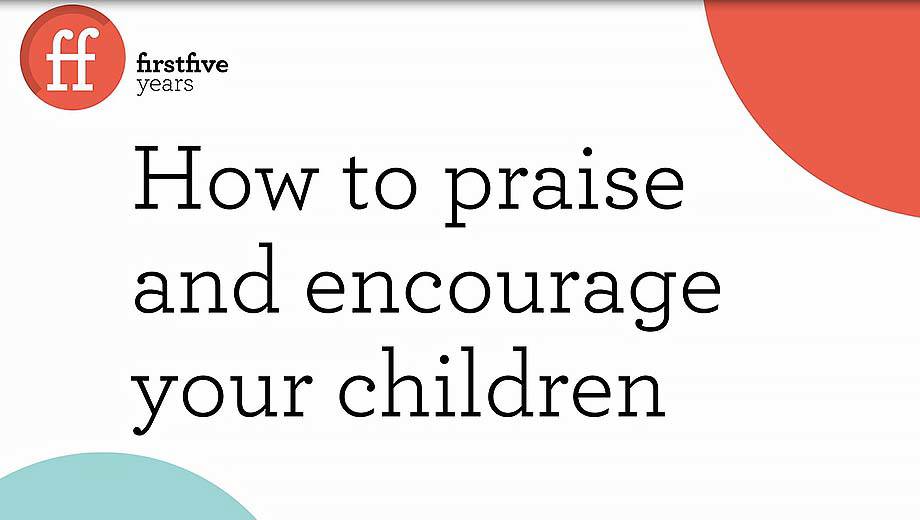Like what you see?
Sign up to receive more free parenting advice.
Thank you for subscribing to our newsletter!
Child Development
“Good job!” “Good effort!” It is likely that most parents and teachers have not only been on the receiving end of such comments, but have also said them to the children around them.
The use of praise is something we have all experienced in some context and there is much debate about whether this is an appropriate tool for raising or working with children and/or to what extent should praise be used. However, perhaps the most important question is not whether praise should be used or not, but rather what type of praise is most beneficial. After all, praise is something most people do not hesitate to use and while there are a broad range of opinions and studies, there appears to be a growing consensus across various studies that using praise is not as problematic as the type of praise used.
In order to better understand why some praise is better than others it is important to tease out a couple of things related to our understanding of behaviour, praise, and how we often internalise, or think about ourselves.
First, there is a fairly robust body of scientific literature suggesting that people often maintain two distinct beliefs about their characteristics or attributes. One belief is that aspects of who we are can be changed, while another is that some things are fixed or permanent.
These belief systems are important, especially when they are being formed as children grow and mature and eventually move into formal educational settings.
The second consideration lies in understanding the overall purpose of praise.
In simplest terms, praise is most often used to encourage children, or adults for that matter, to continue to engage in behaviours that produce positive outcomes. This is very important because there are many people who sometimes mistake praise as a method of building a child’s self-esteem.
Linking praise to self-esteem has pitfalls
Unfortunately, linking praise to self-esteem is fraught with potential pitfalls. For example, using praise to convince a child how good they are at something and convince them of their competence is not all that helpful when the outside world and various experiences might suggest otherwise.
So using the phrase ‘good job’ as an indicator of accomplishment or a feel good mechanism for developing self-esteem becomes problematic because it doesn’t tell a child precisely what they did well and it focuses on an outcome rather than on any process.
Some researchers have found that when you praise effort, you get better outcomes over the long term. Moreover, it also seems that children who hear praise for effort and actions may develop very different belief systems than those who are praised for inherent traits. Inherent traits are those things we attribute as innate, natural and potentially unchangeable such as intelligence.
Our belief systems are important and much of what we believe about ourselves is forged when we are children. Numerous studies have shown that praising a child’s effort, “You did very well; you must have tried very hard”, as opposed to some inherent trait, “You did very well; you’re so smart”, is positively related to that child’s motivation and approach to challenging tasks.
In simplest terms, praise is most often used to encourage children, or adults for that matter, to continue to engage in behaviours that produce positive outcomes. This is very important because there are many people who sometimes mistake praise as a method of building a child’s self-esteem.Dr Michael Nagel
When effort is praised, children show greater willingness to take risks, work out new ways of doing things, do not fear failure and generally appear more resilient over time.
When praised for a trait, such as intelligence, children display less resilience when tasks become more difficult, are more likely to revert to tasks they already know when confronted with something new and are more anxious or worried about failure.
In other words, the initial thrill of hearing praise suggesting a child is ‘smart’ or ‘clever’ or ‘a natural’ eventually appears to impair motivation and overall performance, regardless of the type of behaviour an adult is hoping to foster or reinforce.
For some parents and educators, avoiding praise associated with innate abilities may seem counter intuitive or potentially harmful to a child’s self-esteem.
Praise effort with honest feedback
It would seem, however, that all evidence suggests that praising effort coupled with honest feedback, even if negative, is far better for building a child’s skills, attitudes and behaviours than misguided concerns around self-esteem.
To date, I have not seen any convincing evidence that honest feedback, coupled with a focus on effort causes any harm to a child’s sense of self. Of course, personal insults and abusive comments may damage a child’s self-esteem and repeatedly doing so could have long term implications for a child’s overall mental health but praising effort and providing honest feedback is not only beneficial for a child’s psyche, but can also be a strong motivational tool and mechanism for healthy development and inspire learning.
Belief systems play a very important role in relation to learning and long term educational outcomes.
When a child believes that their reason for success or failure can be found in their effort and approach to something, as opposed to characteristics such as intelligence, their mindset towards learning is far more positive.
When looking to improve at something or deciding whether to accept new challenges, it is far better for a child to believe they can adjust their effort and approach rather than worry over how clever they may, or may not, be.
In the end, the question is not really whether to praise or not, but rather, what type of praise is most beneficial for raising happy, healthy and confident children.

Dr Michael Nagel
Associate Professor, School of Education, University of the Sunshine Coast
See more






